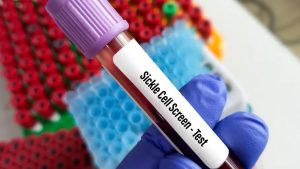David Julius along with Ardem Patapoutian on Monday won the 2021 Nobel Prize in the field of physiology or medicine for discoveries on receptors for temperature and touch. Their “groundbreaking discoveries” of the TRPV1, TRPM8 and Piezo channels provide an understanding of “how heat, cold and mechanical force can initiate the nerve impulses that allow us to perceive and adapt to the world,” the Nobel jury said.
Julius, a professor at the University of California in San Francisco, will share the $1.1 million prize money with Patapoutian, , a professor at Scripps Research in California.
Also Read: Wars, rows and scandals: When the Nobels didn’t go as planned
David Julius has previously won the 2010 Shaw Prize in Life Science and Medicine and the 2020 Breakthrough Prize in Life Sciences, among other awards, for his work on molecular mechanisms of pain sensation.
Born in Brighton Beach, Brooklyn, New York, 65-year-old Julius earned his undergraduate degree from Massachusetts Institute of Technology in 1977, followed by a doctorate from University of California, Berkeley in 1984. He identified Kex2 as the founding member of furin-like proprotein convertases under joint supervision of Jeremy Thorner and Randy Schekman. In 1989, Julius completed his post-doctoral training with Richard Axel at Columbia University where he cloned and characterized the serotonin 1c receptor.
Also Read: From Louise Glück to Roger Penrose, a recap of 2020 Nobel Prize winners
In 1997, researchers led by Julius cloned and characterized TRPV1, the receptor that detects capsaicin, the chemical that makes chili peppers “hot.”
“Capsaicin was already known to activate nerve cells causing pain sensations, but how this chemical actually exerted this function was an unsolved riddle,” according to the Nobel Prize jury.
Julius and the researchers created a library of millions of DNA fragments corresponding to genes that are expressed in the sensory neurons which can react to pain, heat, and touch. They hypothesised that the library would include a DNA fragment encoding the protein capable of reacting to capsaicin.
Hat with Napoleon Bonaparte’s DNA previews in Hong Kong
They expressed individual genes from this collection in cultured cells that normally do not react to capsaicin. “After a laborious search, a single gene was identified that was able to make cells capsaicin sensitive. The gene for capsaicin sensing had been found!” the jury said.
Further experiments revealed that the identified gene encoded a novel ion channel protein and this newly discovered capsaicin receptor was later named TRPV1.







